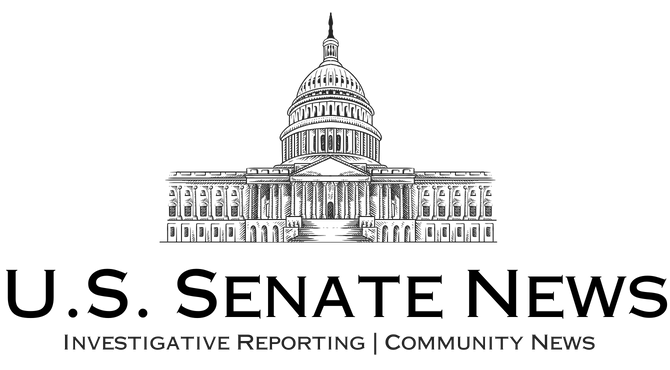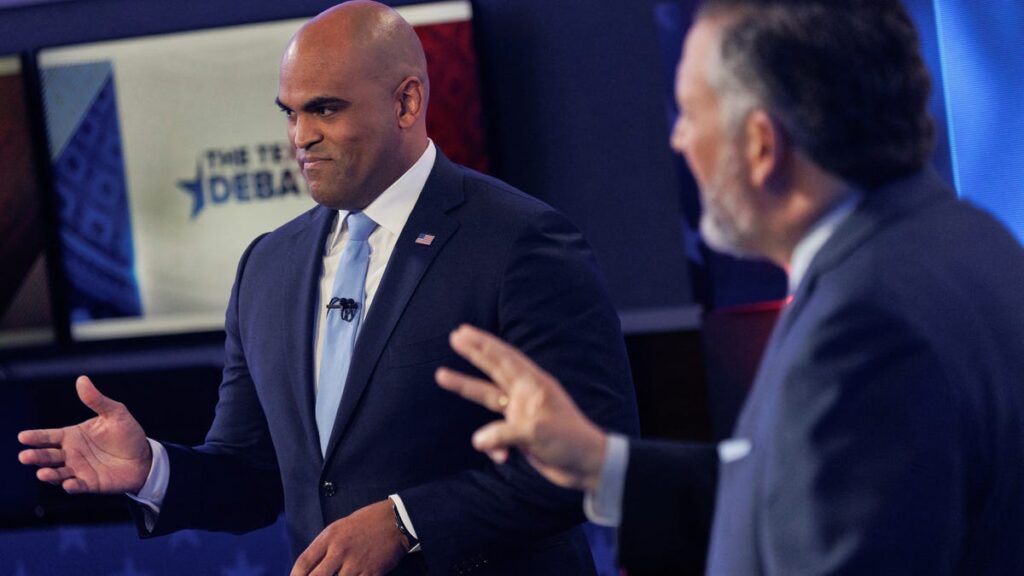These tossup Senate races will decide the balance of power in Congress
Thirty-four Senate seats will be on the ballot in November, but a handful of close races could decide the balance of power in Congress.
WASHINGTON – One of the Senate’s most recognized faces is fighting for another term in Texas. Over in Nebraska, a race that hasn’t gotten much national attention features a populist independent shaking up a reliably Republican state.
In Florida, a Spanish-speaking former congresswoman is running against one of Donald Trump’s most loyal allies on Capitol Hill. And in Democrat-leaning Maryland, an anti-Trump Republican is trying to carve out a spot in the center.
While a large chunk of the national attention in the 2024 battle for control of the U.S. Senate rests in the same presidential battlegrounds – think Pennsylvania, Wisconsin, Michigan, Arizona and Nevada – several other states that are likely slam dunks for Kamala Harris or Trump also have potentially competitive contests too.
It’s a long shot that the challengers in any of these races will be able to unseat the likely favorites. But with three weeks to go and mail-in voting already underway, the candidates are duking it out on debate stages and in television ads while spending tens of millions of dollars to get their messages out before Election Day.
The victor in these states could determine which party controls the Senate as each side seeks a foothold in an almost evenly-divided electoral landscape.
Without a Senate controlled by their own party, the next president will likely struggle to pass the most ambitious parts of their campaign platform. The Senate is also solely responsible for confirming a president’s Cabinet officials and judges, from federal district courts up to the U.S. Supreme Court, where four of the nine justices will soon be in their 70s.
Here’s what to know.
Texas
The Lone Star state has emerged as one of the Democrats’ best chances of flipping a Senate seat in this election. The position is currently held by Republican Sen. Ted Cruz, who served in the George W. Bush administration and as Texas solicitor general before being elected to the Senate in 2012.
Cruz narrowly won his last race six years ago when former Rep. Beto O’Rourke came within three percentage points of toppling him in the traditionally deep-red state. Democrats reference that race as reason for them to think that a win in Texas in 2024 is possible.
This year, they’ve drafted former NFL linebacker and current U.S. Rep. Colin Allred, who grew up in Dallas and played for the Tennessee Titans for five seasons before going to work in the Obama administration. Allred has served in the House since 2019. If he won, he would be Texas’ first Black senator.
Allred is running to the center, campaigning on Democratic mainstays like abortion rights while he distances himself from party leaders and pledges to be tough on border security. Cruz is also arguing he’s transformed from a partisan bomb-thrower to a bipartisan dealmaker in the Senate and is attacking Allred on immigration, the economy and transgender policies. Despite challenging Trump in a bitter fight for the GOP presidential nomination in 2016, Cruz has since been a supporter of the former president.
Cruz and Allred duked it out in a tense debate Tuesday night, where both candidates aimed to paint the other as extreme. In one notable moment, Allred slammed Cruz as “a threat to democracy” and said Cruz was “hiding in a supply closet” when a mob of Trump supporters came to the U.S. Capitol on Jan. 6, 2021 after the senator objected to the certification of Arizona’s election results.
Recent polls indicate Cruz has around a four percentage point lead on Allred, a split that has narrowed slightly as Election Day approaches.
Texas voters don’t register by party, but recent election turnout data indicate Republicans still have the advantage: In the 2022 gubernatorial primaries, almost 2 million Republicans voted in the state while just over 1 million Democrats did. In the 2020 presidential primary – when Trump faced no serious primary challenger and there were multiple candidates vying for the Democratic presidential nomination, giving Democrats more of a reason to show up – Republicans and Democrats still turned out in nearly equal numbers to vote.
Democrats haven’t won a statewide office in Texas for 30 years. But as Montana increasingly appears out of reach, the Democratic Senatorial Campaign Committee announced it would put millions more into the race to boost Allred, who has already out-spent Cruz.
It’s now ranked one of the most expensive Senate races in the country, according to OpenSecrets. Cruz’s campaign and affiliated PACs have raised $90 million this election cycle, according to campaign finance filings, while Allred and his affiliated PAC have raised $76.3 million.
Election Day is weeks away. Sign up for USA TODAY’s On Politics newsletter to stay updated.
Florida
Democrats in Florida are hoping two state referendums – one to protect abortion rights and one to legalize recreational marijuana – will help drive enough liberal voters to the polls to help them flip this seat in a state that is increasingly voting Republican.
Incumbent GOP Sen. Rick Scott is defending the seat against former U.S. Rep. Debbie Mucarsel-Powell, who immigrated to the U.S. from Ecuador as a teenager and worked for non-profits before serving in the House from 2019 to 2021. If she won, Mucarsel-Powell would be the first Hispanic woman to represent Florida in the U.S. Senate.
Scott, who served as Florida’s governor before being elected to the Senate in 2018, benefits from statewide name recognition. He’s also a former CEO of a major for-profit health care provider who poured at least $8 million of his own money into the race and has massively outspent Mucarsel-Powell.
Scott’s campaign committee and affiliated PACs have raised $41.4 million to support him so far this cycle, according to campaign finance filings, while Mucarsel-Powell has raised $27.2 million. Like Texas, national Democrats made a last-minute cash dump into the Florida race as their chances in Montana began to slip.
Trump has long had Scott’s support. The senator endorsed Trump in 2016 when many Republicans were still hesitant to embrace the rookie presidential candidate, and Scott has remained a steadfast ally. In the Senate, Scott has become a leader of a group of the chamber’s most right-wing senators and unsuccessfully challenged Mitch McConnell, R-K.Y., for the role of Senate GOP leader in 2022. Now that McConnell is stepping down from leadership, Scott is running to replace him against Sens. John Thune, R-S.D. and John Cornyn, R-Texas, both McConnell allies.
The Florida Senate race has been made more complicated by recent hurricanes Helene and Milton that flattened some communities and put federal support for victims in the spotlight. Both candidates have taken out ads related to the disaster and its aftermath.
Registered Republicans in Florida outnumber registered Democrats by more than 1 million, according to the Florida secretary of state. Another 3.6 million voters remain unaffiliated. Scott has consistently polled ahead of Mucarsel-Powell, though recent polls indicate that lead may be narrowing.
Nebraska
Deep-red Nebraska was thought to be an easy win for Republicans this cycle. But independent candidate Dan Osborn is throwing that into question with a populist campaign message that may bring him within striking distance of two-term incumbent GOP Sen. Deb Fischer.
Osborn is an industrial mechanic and a union leader who led the 2021 strike at the Kellogg’s plant in Omaha. He hasn’t said whether he would caucus with Republicans or Democrats if elected to the Senate and distanced himself from the state’s Democratic Party. However, liberal outside groups have spent money to support him and attack Fischer.
Fischer is a cattle rancher who served in the state legislature for eight years before running for Senate in 2012. She won her last two Senate elections by 16 and 19 percentage points. She has been touting her endorsement from Trump and criticizing Osborn for not saying who he supports for president.
As of this month, almost 50% of registered voters in Nebraska are Republicans, compared with only 27% registering as Democrats. However, another 22% are registered as nonpartisan.
Outside spending from national political groups has picked up in recent weeks, and both campaigns plan to ramp up their spending in the final stretch. Osborn’s campaign has raised $4.9 million so far this cycle, according to campaign finance filings, while Fischer reported raising $7.8 million across her campaign committee and affiliated PAC, though another GOP super PAC recently bought $2 million in TV ads to attack Osborn.
Political analysts say Fischer remains the favorite in the race. But the two candidates have both released recent internal polls showing themselves ahead by a modest margin, so it may be tighter than expected.
Maryland
Reliably blue Maryland was on a glide path to filling their soon-to-be open Senate seat with another Democrat. Then former Republican Gov. Larry Hogan stepped into the race, immediately making the race with Prince George’s County Executive Angela Alsobrooks competitive.
Hogan aims to convince some of the state’s Democratic voters to split their ticket and choose him as well as Harris by distancing himself from Trump and pledging to protect abortion rights if he’s elected. Hogan has long been critical of the former president, saying he has led Republicans in the wrong direction. He has also said he would have voted in the Senate to convict Trump following the Jan. 6, 2021, riot at the U.S. Capitol building.
Hogan’s name recognition – and tendency to clash with his own party – has some history behind it. Hogan’s father, Lawrence Hogan, was the only Republican member of the House Judiciary Committee to vote for all three articles of impeachment against President Richard Nixon in the wake of the Watergate scandal.
Alsobrooks has worked to communicate to voters that Hogan would still be a Republican in the upper chamber – which could determine who controls the Senate and its agenda, regardless of how he votes on issues. She’s pitched herself as a defender of abortion rights and economic opportunity. If she wins, she would be the first Black senator from Maryland.
Alsobrooks has a significant edge in the polls. More than 52% of registered voters in Maryland are Democrats, while only 24% are Republicans. Another 24% are unaffiliated or align with a third party.
Still, the race has become another one of the most expensive in the nation as the campaigns and outside groups spend millions for the opposing candidates.
So far this cycle, Alsobrooks’ campaign committee and affiliated PAC raised $32.6 million, according to campaign finance filings. Hogan’s campaign committee and affiliated PAC raised $22.2 million, but he is also benefitting from an independent PAC called Maryland’s Future that raised $27 million through September and spent almost $11 million.
Longer longshots
Several other races are even more off the radar of national political groups that are busy going after easier targets. But campaigns in North Dakota, New Jersey, Missouri and Minnesota say they have a shot at taking out their statistically-favored opponents.
New Jersey Sen. Bob Menendez’s resignation after being convicted in a federal corruption trial left an open seat in the Garden state, where voters have skewed Democratic for decades. U.S. Rep. Andy Kim, D-N.J., won the competitive Democratic primary. He faces hotelier Curtis Bashaw, who beat a Trump-endorsed candidate in the primary and is running as a moderate. Polling from earlier this year puts Kim at an advantage.
Missouri Sen. Josh Hawley, a first-term Republican, is being challenged by Democratic candidate Lucas Kunce, a Marine veteran who previously ran for Senate unsuccessfully in 2022. Internal polls from Kunce’s campaign indicated he may be just 4 percentage points behind Hawley in the Republican-leaning state. However, independent polling puts Hawley at a safer distance.
In North Dakota, engineering professor and Democrat Katrina Christiansen is challenging Republican Sen. Kevin Cramer. Her campaign says she has outraised Cramer and has narrowed their polling gap significantly, according to a campaign-sponsored poll. However recent independent polling from the North Dakota News Cooperative shows Cramer with a safe lead.
Sen. Amy Klobuchar, D-Minn., is defending her seat in a long-Democratic state that Republicans have hoped might lean their way this election cycle. She’s running against Royce White, a former NBA player who has a history of controversial remarks that have left him without the support of the National Republican Senatorial Committee. Recent polls put her at an 8 percentage point advantage over White.



